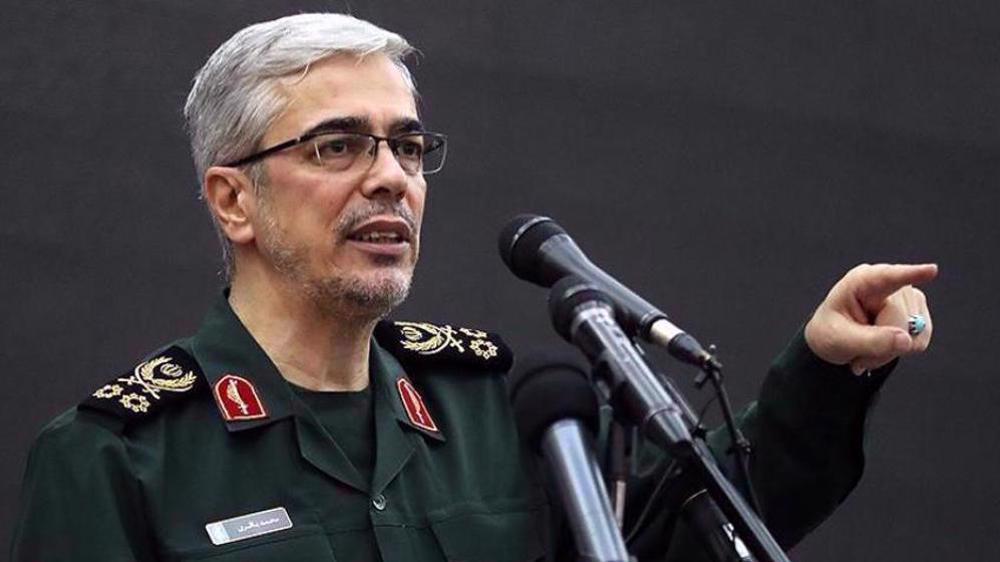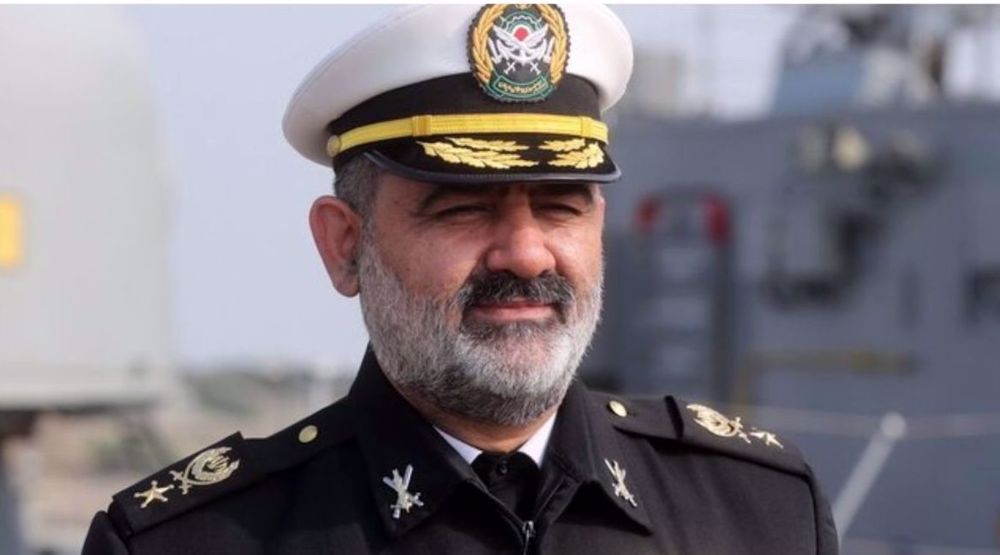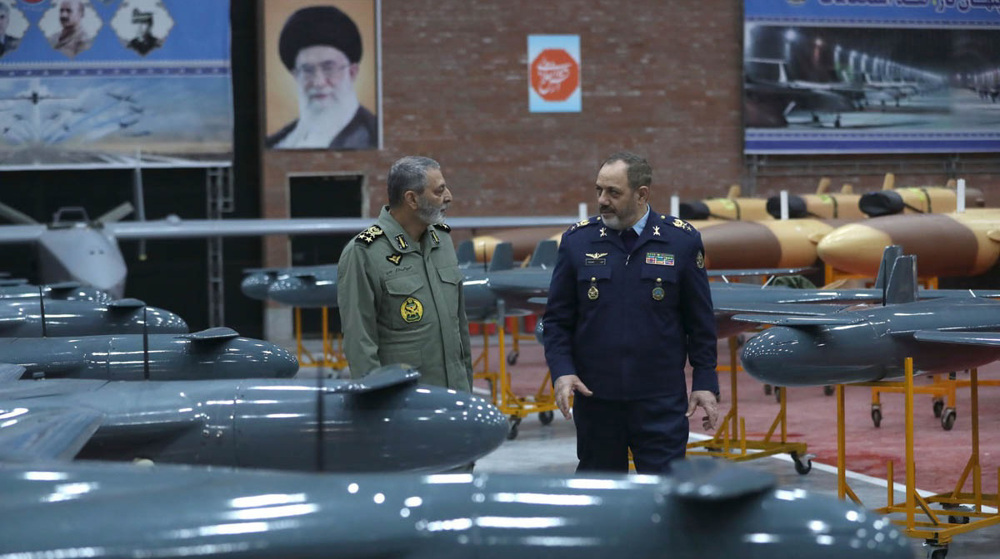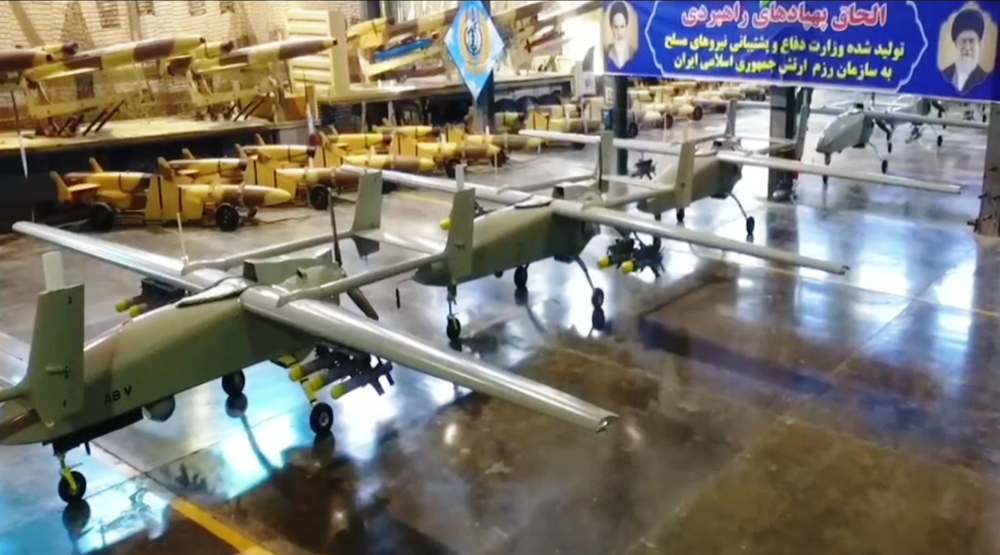Iran to intensify attacks on terrorist groups if Iraq fails to honor security pact: Top general
Chief of Staff of the Iranian Armed Forces Major General Mohammad Baqeri has warned that the Islamic Republic will resume its retaliatory attacks against terrorist groups in northern Iraq more intensely if Baghdad fails to abide by its obligations in disarming the separatist outfits.
Baqeri made the remarks in an annual gathering of the commanders of the Islamic Revolution Guards Corps (IRGC)’s Ground Force in the northeastern city of Mashhad on Tuesday as he pointed to various agreements between Iran and its neighboring countries in the field of border security and military cooperation.
“Today, we have relations with most of the neighboring countries and many memorandums of understanding and agreements have been signed or are in the process of finalization,” Baqeri said, adding, “The outcome of all such agreements with neighboring countries will be the promotion of security, peace and friendship among them.”
The chief of staff of the Iranian Armed Forces said the agreements are aimed at maintaining the security of West Asia by the countries of the region, adding, “There is no need for the presence of foreign forces to ensure the security of the region, and the Zionists have no place in this region.”
He praised security at Iran’s border areas as “markedly better than in the past,” but added, “Regretfully, some neighboring countries do not duly fulfill their responsibility towards [ensuring the security of] borders; [as] there are armed separatist groups in northern Iraq that foment insecurity on our borders.”
Read more:
Stressing that the IRGC’s Ground Force has carried out effective missile and drone operations against such groups in the past to protect the country's security, Baqeri said the operations stopped after the Iraqi government made a commitment to disarm the terrorist groups and prevent their actions by September.
“We will wait until September, when it is the deadline for the Iraqi government [to meet its] obligation, and we hope that the Iraqi government will fulfill its responsibility,” the top Iranian general said.
But if the deadline is missed and terrorist groups remain armed or carry out operations, “our attacks against these groups will be definitely repeated with more intensity.”
Back in March, top authorities form Iran and Iraq signed a landmark security agreement aimed at providing a roadmap for ensuring durable security at their common borders.
Read more:
Since September last year, Iran's Islamic Revolution Guards Corps has launched several raids against the positions of the notorious so-called Democratic Party of Iranian Kurdistan (PDKI) and the Komala Party in the northern Iraqi Kurdistan region.
The elite force has, on at least several occasions, urged the central government in Iraq as well as the Kurdistan region to meet their commitments towards Iran and take necessary measures to make the common border between the countries secure.
Iran has repeatedly warned Iraqi Kurdistan’s local authorities that it will not tolerate the presence and activity of terrorist groups along its northwestern borders, saying the country will give a decisive response should those areas become a hub of anti-Islamic Republic terrorists.
On November 21, 2022, positions of anti-Iran separatist and terrorist groups in northern Iraq came under combined attacks using missiles and kamikaze drones. The strikes targeted the positions of the notorious PDKI and the Komala Party in northern Iraqi Kurdistan, Iran’s Arabic-language al-Alam television news network reported at the time.
According to the network, one attack saw four missiles being fired against a PDKI position in the town of Koy Sanjaq in Erbil Province. A separate attack featured kamikaze drones smashing into another site belonging to the group near Baharka village.
Simultaneously, kamikaze drones struck positions associated with Komala across two locations near the city of Sulaymaniyah.
South Korean President Yoon arrested over failed martial law bid
VIDEO | Press TV's news headlines
US budget deficit surges to record $711 billion
VIDEO | Yemeni army conducts three attacks against Israel within 12 hours
VIDEO | Gaza’s kidney patients face imminent death amid lack of fuel
Yemeni drones hit targets in Israel-occupied Yaffa
VIDEO | Is the worst yet to come?
ICC prosecutor pushes rejection of appeal on Netanyahu arrest warrant










 This makes it easy to access the Press TV website
This makes it easy to access the Press TV website